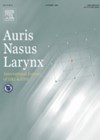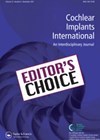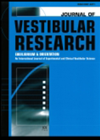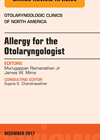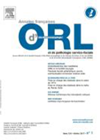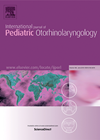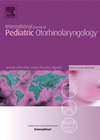
Journal Reviews
Pharmacological treatment of glue ear in children
Otitis media with effusion (OME), also known as glue ear, is a common cause of hearing loss in children. Most cases resolve spontaneously within three months. Early and proper management of OME can help avoid hearing and speech impairment that...
Moving towards implanting children below 12 months of age
Newborn hearing screening has ensured that deaf infants are identified soon after birth so that habilitation can begin as early as possible. Cochlear implantation is a key component of early intervention for some children, but it is often not performed...
The vestibular system is not immune to chronic otitis media
It is well recognised that chronic otitis media (COM) is a risk factor for sensorineural hearing loss. Studies on the effect of COM on vestibular function have been beset by design biases. The authors designed a case control study to...
Allergy and the ear
Allergic disease is commonly associated with asthma, eczema and rhinosinusitis. The authors reviewed possible associations between allergy and otologic diseases. The authors first explored the possible association between allergy with otitis media with effusion (OME) and found the majority of...
eNOS and OME
The pathophysiology of otitis media with effusion (OME) is multifaceted. The authors tackled the nitrous oxide (NO) and platelet activating factor (PAF) pathways and the genetic polymorphism of endothelial nitrous oxide synthetase (eNOS). DNA analysis by PCR and restriction fragment...
Antiseptics to combat otorrhea in the era of antibiotic resistance
This nice scientific paper pits various antiseptic solutions against each other to determine which has the most bactericidal properties. Five different antiseptics were applied to MRSA and quinolone-resistant pseudomonas species, which are both difficult to treat with conventional ototoxic medications....
Friendly bacteria in the ear nose and throat to combat the bad…
The author presents a thorough review of bacterial interference and the studies that have been conducted in common ENT conditions. The simple concept is that a strong population of normal flora will interfere with colonisation and subsequent infection by pathogenic...

